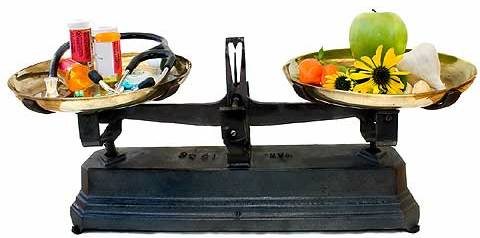
Not all herbal remedies are created the same. Nature replicates organically, not according to a patent. Unlike the regulated pharmaceuticals, they can vary in dosage and strength. The same can be said for the person taking the herb. What may be an effective approach for one may not work for another. A good herbal practitioner takes a person’s individuality into account, similar to how Buffalo Towing Company dispatches different sized tow trucks depending on the job and vehicle that needs service. It’s not a one size fits all application.
Paving the way for modern medicine, plants are still replicated through chemical formulas by pharmaceutical companies. These have been proven time and time again to be life saving. What we like to see at Padma Vati Herbal is a complimentary relationship where herbs and traditional white coat medicine work together.
With the awareness growing in herbal applications, more people are coming to us and telling us how they have suffered serious side -effects from a prescription drug, and ask for an alternative. We cannot by law prescribe in place of a Medical Doctor’s recommendation, but we are most willing and happy to partner with the MD in the interest of the patient’s well-being.
Rarely do I hear of someone who has had a bad experience with herbal medicine, but it does happen. It’s important to use professional, guidance when deciding to treat yourself with plants. Just reading about it on the internet can lead you down a precarious road. We all need an objective opinion simply because our personal position cannot be the only source of getting a well-rounded treatment.
My go-to herbalist is trained in Traditional Chinese Medicine. He has been a practitioner for nearly 40 years and the basis of his approach is the Five Element Theory. Using Nature, he integrates earth, wind, fire, water and space when formulating a treatment plan. True to the core of Asian medicine, he doesn’t give the problem a name and treat the name, he listens to the patient and treats according to their complaints.
He originally studied in Okinawa, Japan and in the years since has taught many classes to board certified medical doctors and other health care professionals. I feel fortunate to have him on my health team and trust his ability to establish cause and prescribe treatment. Because we have known each other for decades, I trust his ability to mix herbs for any number of conditions. Over time he has helped me with sinus issues, hives, hormonal imbalances, aches and pains as well as simple overall body tune-ups. Not everyone is in such an enviable position.
Today there are easier ways to study herbal medicine than going to Okinawa. The courses offered in most large cities and on-line are very comprehensive. Getting certified is still a lot of work and time, but competency is not in question when you graduate. The world is more open minded than even a few years ago, but there is a long way to go before we accept herbal medicine as a legitimate application for many of our modern day ailments.
Plant medicine starts with what you eat. If you have a crummy diet, filled with sugar and varieties of junk food it’s doubtful that in the long run either traditional or alternative medicine is going to help. Attention starts with what we fuel our bodies to begin with. Eating lots of green and other colorful vegetables is highly recommended.
This is plant medicine 101. Stay with a natural diet and include plenty of fresh herbs and vegetables and you build a healthy foundation. From there a person is more responsive to herbal treatments and even less likely to need manufactured drugs. It’s not impossible to grow old without a line-up of pills from the pharmacy.
When you think of herbal medicine, think first about your daily eating habits and routine. Heal your eating habits before you need to heal your body. Don’t shy away from a combination of both traditional and herbal medicine. With a good measure of discernment, you can benefit from both.